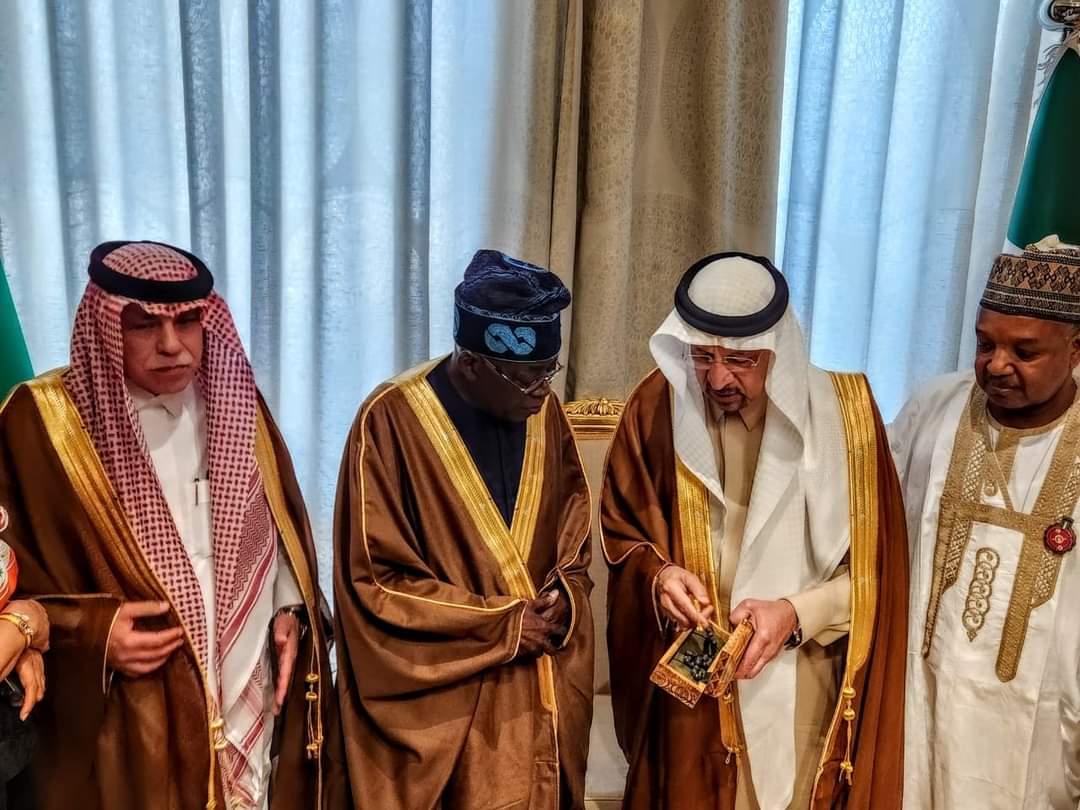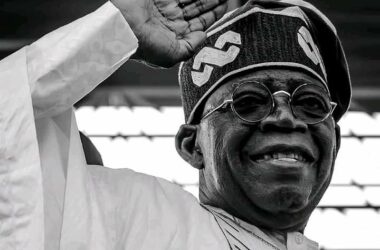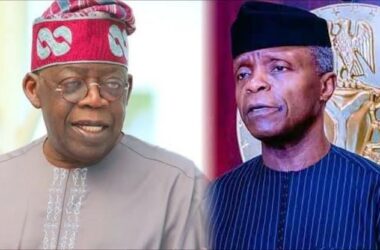Nigeria means business – and she is open for business as never before.
If anybody needed a reminder about the country’s seriousness in this regard, they need go no further than to cast their minds back to the issues the Nigerian President, Asiwaju Bola Ahmed Tinubu had addressed earlier this year at both the G20 Summit in New Delhi, India, and the 2023 General Assembly of the United Nations in New York, USA, as well as during his trip to the United Arab Emirates in the run-up to those two key summits.
In strongly-worded and highly-acclaimed speeches, the Nigerian leader minced no words in urging the global community to prioritise African development as a measure of enlightened self-interest, the goal of which should be a partnership that is beneficial to all parties, instead of yet another avenue for the exploitation of the continent and its resources. He drew the international business community’s attention to the enormous potential of Africa’s largest economy in particular – both as a market and as a hub for investment across sectors – and underscored his administration’s commitment to create a conducive environment for Foreign Direct Investment to thrive (chiefly by removing bottlenecks that impede growth, as well as offering robust incentives to prospective investors), and to expand the scope of Nigeria’s business partnerships. This commitment, he said, was being reinforced by his government’s ongoing domestic reforms. He repeatedly assured investors that Nigeria would become one of the “most conducive places on earth” for foreign investments.
Those issues were reiterated this past week at the inaugural Saudi-Africa Summit which took place in Riyadh, the glittering capital of the oil-rich Kingdom of Saudi Arabia, on November 10, 2023. As with his previous engagements of this kind since his assumption of office in May this year, the President had a bucket list of proposals for the consideration of his Saudi summit hosts – and, for that matter, his African counterparts on the level of the African Continental Free Trade Agreement (AfCFTA). On the table of discussion at the Summit were issues revolving around supporting joint action against corruption and online fraud; enhancing political coordination; addressing regional security threats; facilitating economic transformation through research; and enhancing the local development of new energy solutions.
Saudi Arabia is Tinubu’s 9th foreign destination since May 29; he has so far attended engagements in France (twice), the UK, Guinea-Bissau, Kenya, Benin Republic, India, the UAE, and the USA. All of them have been driven by a single, overarching aim, namely, to position Nigeria for strategic advantage. The President’s intentions in this regard were aligned with what he aimed to achieve at the Saudi-Africa Summit, which was chiefly to mobilise capital to build badly-needed infrastructure in Nigeria. His seriousness was clearly reflected in the high-powered nature of his entourage in Riyadh, as it included major players in both the public and private sectors of the economy, such as state governors, ministers and captains of industry.
True to his pre-election campaign and inaugural day pledges, President Tinubu has, in the period since his assumption of office, been relentless in his push for more investments in a bid to revive an economy weakened by double-digit inflation, foreign currency shortages, a crumbling local currency, widespread insecurity, and crude oil theft.
In his bilateral engagements with public and private sector leaders in Saudi Arabia at the Nigeria-Saudi Arabia Investment Roundtable (held on the sidelines of the Summit proper) the President wasted no time in impressing on them his commitment to advancing free market policies – towards an economy driven by the market forces of supply and demand, as opposed to one controlled 100% by the government – as a driver of Nigeria’s economic resurgence, as well as a template for her dealings with other economies. He assured prospective investors of zero obstacles to their enjoying the full measure of their legitimate reward for their ventures in Nigeria. “Your money will flow easily in and easily out,” Tinubu told his hosts, adding that the arbitrage around Nigeria’s old foreign exchange policy regime, and the corruption that was associated with it, was now a thing of the past – thanks to the bold refroms his government undertook shortly after taking office, aimed at modifying policies impeding the ease of doing business, monetary matters, and trade co-operation. “We took on those bold endeavours from Day One,” he went on to say, “in preparation for serious investors like you. “
The President then touted his country’s greatest asset, calling Nigeria’s human capital the best opportunity for anyone, Nigerian and foreign alike, to prosper in our economy. “We can produce … Our market is full of Nigerian youths who are brilliant, highly educated, industrious, and passionate about innovation and engagement with world-class services.”
Members of the President’s entourage also echoed his assurances. Alhaji Aliko Dangote, Chairman of Dangote Group, described Nigeria as the “world’s best-kept secret” in terms of investments and returns. “We are also looking to ensure,” he said, “that our investments are a two-way process. Nigerian companies have a lot of value to add to the Saudi economy. “ Dangote expressed confidence that, under the leadership of President Tinubu, Nigeria would soon be unearthed to the world as a foremost global investment haven.
On his part, Wale Edun, the coordinating minister for the economy, called Nigeria a natural home for Arab (not just Saudi) investors. Similar sentiments were also expressed by top business leaders in the Nigerian delegation such as the Chairman of the Chagoury Group, Ambassador Gilbert Chagoury; the President of Flour Mills Nigeria, Mr. John Coumantaros, and the CEO of Oando Energy Company, Mr. Wale Tinubu, among others.
The Saudi response to the Nigerian assessment of the country’s economic and investment state of play was no less effusive – with Kahlid El-Falih, Saudi Arabia’s Trade and Investment Minister, making assurances of his own. Nigerians, he said, can fully expect that the Saudi investment community would respond, not just with words, but with substantial investments across several sectors of the Nigerian economy. On his impending follow-up visit to Nigeria along with the Saudi minister for commerce and a high-powered multi-sectoral delegation of business leaders (to take place later in the year or in early 2024) he said, “We know you are ready for business, so we do not want to come to Nigeria for any exploratory discussions. We are coming for IMPLEMENTATION. It is an action visit.”
Praising the passion and candour of Pres. Tinubu in stating Nigeria’s case and laying out an inspiring vista of what’s possible between the two oil-rich nations, el-Falih said officials and business people on both sides would, without delay, begin work to develop a concrete plan of investments in key sectors for takeoff, pending the inauguration of the proposed Nigeria-Saudi Business Council in Abuja in 2024 – a body which, by common consensus on both sides, could set the template for virtually unlimited expansion for the economies of Nigeria and Saudi Arabia. The Council is expected to develop a comprehensive road map and blueprint to deliver on the proposed investments.
“When we meet … in Abuja,’ el-Falih said in conclusion, “it will be to sign and begin delivery on all agreements.”
As if to buttress el-Falih’s comments about the immediacy of Saudi interest in the Nigerian economy, the Saudis made a number of commitments in principle – even while the Nigerian President and his team were still in town. One of these commitments was, unsurprisingly, in the oil sector. As fellow-members of the Organization of Petroleum Exporting Countries (OPEC), both nations have a common stake in the sustainability and stability of the global oil and gas ecosystem, especially in these days when the conversation about net-zero carbon emissions arising from fossil fuel use, and the urgent imperative of energy transitions, is intensifying across the globe. Nigeria’s continued struggle for achieve internal supply and price stability, on one hand, and to mitigate the adverse effects of the decline of oil prices in the international market on the other, is the motivation behind the Saudi offer to help revive Nigeria’s moribund oil refineries and get them operational again. This investment, which would be driven by the Saudi government’s chief oil conglomerate, Saudi Aramco, is expected to be completed within a period of two to three years. This intention on the part of the Saudis was concretized by a Memorandum of Understanding (MOU) signed on the eve of the Summit between Nigeria’s Minister of State for Petroleum Resources, Sen. Heineken Lokpobiri and his Saudi counterpart, Prince Abdulaziz bin Salman.
Secondly, among the reforms the Tinubu-led government undertook upon taking office had to do with the nation’s monetary and fiscal policies. In the run-up to the inception of the Tinubu administration, the country’s fiscal health took a hit, with the policies of the Godwin Emefiele-led Central Bank of Nigeria adding to the ill-advised economic policies of the previous administration – as a result of which foreign direct investment into Nigeria’s economy dropped dramatically from $2.2 billion in 2014 to just $470 million in 2022, according to a recent report by the Institute for Security Studies, a think tank. Even now, six months or so after the Tinubu reforms were initiated, liquidity is yet to return to the official currency market; the naira is still quoted at a premium on the parallel market – a situation which the Saudis say they want to ameliorate, at least in the short term, by making a substantial deposit of foreign exchange to boost Nigeria’s forex liquidity. Though the details of the Saudi investment template for the Nigerian economy as a whole are yet unclear (pending the direction set forth by the aforementioned Nigeria-Saudi Arabia Business Council), it is expected to help reform the operations and direction of the CBN and set the country’s apex bank on a path to fully realize the aims of the new monetary and fiscal regimes, going forward.
Also, Nigeria stands to be a key beneficiary of an agreement reached in the course of the Summit, whereby a consortium of Arab corporations have pledged the wholping sum of $50bn for climate-resilient infrastructure across Africa.
The multiplier effects of these proposed investments, and the overall engagement between the Kingdom of Saudi Arabia and the Federal Republic of Nigeria, will be seen in various aspects of the country’s life. The prospect of job-creation (especially among our teeming youths), in particular, is one that excites many relevant Nigerian stakeholders. The Minister of Humanitarian Affairs and Poverty Alleviation, Dr. Betta Edu, for example (who was part of the Tinubu-led delegation); was enthusiastic about the role this would play in her ministry’s plan to eradicate ‘multidimensional’ poverty by 2030. She cited in particular the King Salman Humanitarian Aid and Relief Centre, which would be partnering with her Ministry in these areas – as well as other potential job-creating and revenue-generating sectors such as agriculture, solid minerals, finance, etc.
As President Tinubu noted in Riyadh, Nigeria (Africa’s leading oil producer) and Saudi Arabia (the world’s leading oil exporter) have always enjoyed a special relationship on both the bilateral and multilateral levels – especially on the level of the aforementioned OPEC, as well as the Organisation of Islamic Cooperation (OIC). Within the past six decades, the bilateral cooperation has witnessed a diversification to cover a number of areas of common interest, which the latest engagement is expected to further strengthen.
Same goes for the Kingdom’s relations with other African countries, which began to grow in the 1970s. But while Saudi Arabia’s diplomatic presence in Africa has risen considerably in recent years, its economic involvement still remains limited – a situation which the Saudi-Africa Summit is now expected to redress. In the case of Nigeria, according to Benjamin Auge, a researcher at the French Institute of International Relations (IFRI), energy cooperation between the two countries only exists through discussions at summits and meetings of OPEC. But no significant investment by Saudi Arabia in the Nigerian oil sector has materialised.
Until now, that is.
As suggested by the Chairman of the Dangote Group, Saudi Arabia, too, stands to gain from this new approach, as Nigeria has the potential to add value to its economy. In an increasingly multi-polar world, characterized by the decline of the old, post-World War 2 power blocs and the rise of emerging economic giants, as well as far-reaching adjustments in the global energy paradigm occasioned by geo-political and economic shifts such as climate change, Brexit, the Russia-Ukraine conflict, the profound impact of the COVID 19 pandemic, and the advent of new and potentially disruptive technologies such as artificial intelligence (AI), etc, the quest for a diversified trading profile is intensifying across the globe. The Kingdom of Saudi Arabia is no exception to this quest.
So far, this approach is proving to be a winner for them. Interestingly, the Saudi-Africa Summit follows in the heels of the Kingdom’s recent success in securing the hosting rights to the 2034 FIFA Soccer World Cup – which, if the 2022 experience of neighboring Qatar is anything to go by, promises to establish Saudi Arabia as a global commercial, investment and tourism powerhouse – beyond oil.
That’s the promise the Saudi-Africa Summit also holds for both entities, as it aligns perfectly with President Bola Tinubu’s relentless investment drive and his quest for new partnerships in a bid to deepen the fundamentals of the Nigerian economy – by diversifying its sources of revenue and broadening its scope of partnerships.
A note of warning, though: Even the most intimate of relationships are not without the possibility of unraveling, due to factors like misunderstanding of intentions, and misrepresentation of actions and their motivations. The abrupt revocation, on arrival, of the visas of Nigerian travelers to the Kingdom by the Saudi authorities, and the cancelation of the landing rights of a Nigerian carrier, Air Peace (while the Nigerian President and his team were still in the country) leaves a sour taste in the mouth and a dampener to the euphoria occasioned by the understanding reached by the parties at the Saudi-Africa Summit. Even as one wishes to give the Saudi authorities the benefit of the doubt regarding this action, a prompt investigation into the circumstances of this embarrassing episode – as well as a strong diplomatic response on the part of Nigeria – is called for, lest its fallout should lead to unintended consequences that may derail (or at best, delay indefinitely) the benefits expected to accrue from the budding partnership between Nigeria and Saudi Arabia.






